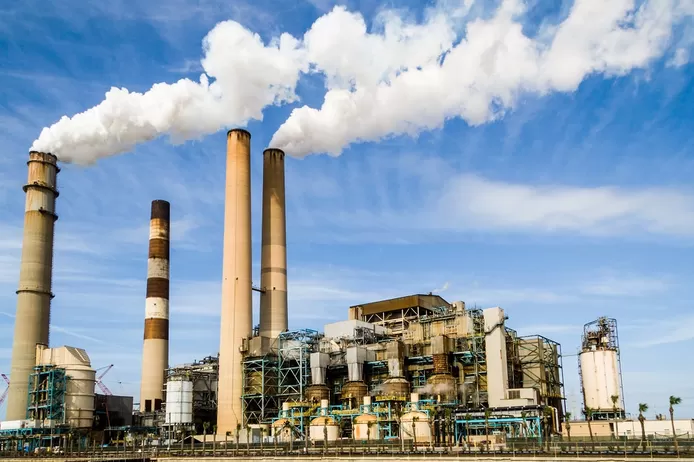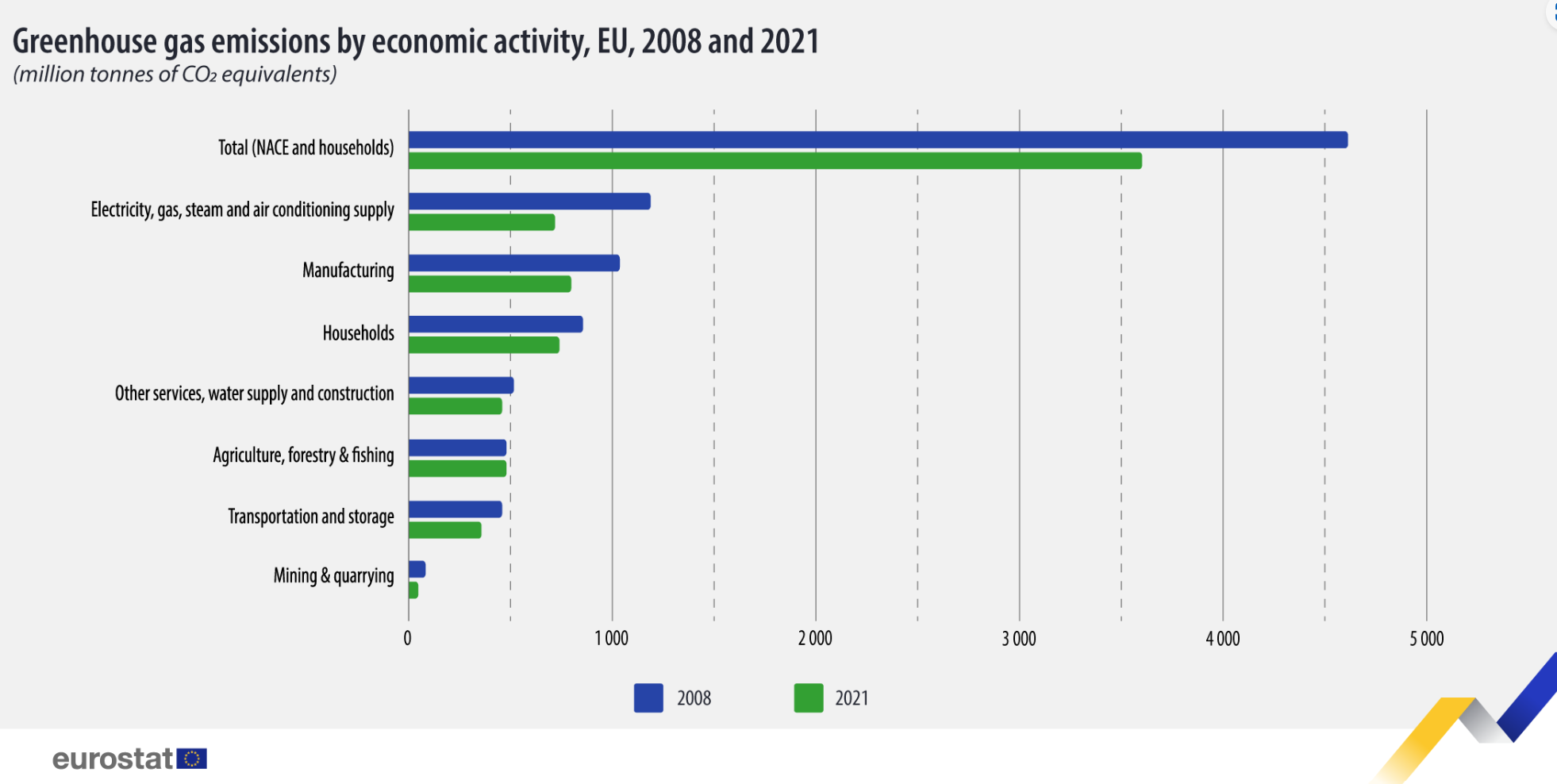EU greenhouse gas emissions fell 22% in 2021 compared to 2008, according to new data released by Eurostat, the EU's statistics office.
The report noted that mining and quarrying recorded the largest relative decrease of greenhouse gas (GHG) emissions (-42%), while the largest absolute decrease of GHG emissions was noted in the supply of electricity, gas, steam and air conditioning (-468 million tonnes of CO2-equivalent).
Manufacturing contributed the most to GHG emissions (800 million tonnes of CO2-equivalent, or 22% of total greenhouse gases emitted) in 2021, followed by households (21% of total GHG emissions) and the supply of electricity, gas, steam and air conditioning (20% of total GHG emissions).
Notably, the report failed to mention the fact that EU GHG emissions have actually increased 3% compared to last year. This is partly due to the end of government-imposed Covid restrictions, as well as the fact that Europe, in contrast to almost the entire rest of the world, has increased its consumption of coal — one of the dirtiest of all fossil fuels — as a means of coping with the energy crisis precipitated by Russia's invasion of Ukraine in February this year.
Related News
- EU greenhouse gas emissions increase compared to last year
- The EU's dirty secret: Coal consumption grows while rest of world cuts back
As signatories to the Paris Climate Accords, the EU is committed to reducing its GHG emissions by 55% by 2030 relative to 1990.
Despite the EU's reduction in its GHG emissions in recent years, however, the Climate Action Tracker research group has rated the EU's climate targets and policies as "insufficient", and suggested that the bloc's "climate policies and commitments need substantial improvements to be consistent with the Paris Agreement's 1.5°C temperature limit".


